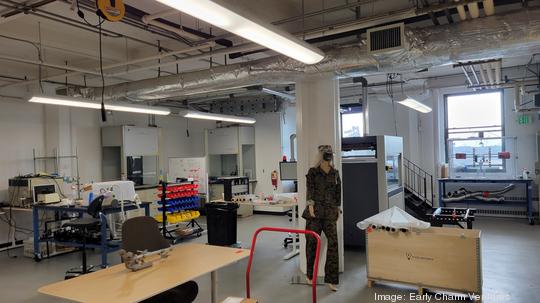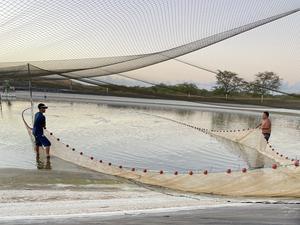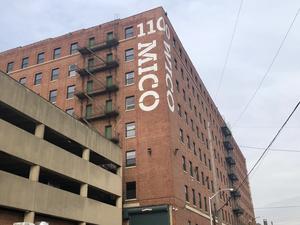
A Baltimore materials company won a $2.7 million U.S. Department of Energy grant to create a new style of ceramic packaging for electronics, an innovation that is designed to improve the performance of electric vehicles and aircraft.
Synteris uses 3D printing to create uniquely shaped ceramic packaging for power electronic modules, the devices used to transfer energy from a battery to something like an electric motor for a car. The company plans to use the grant for research and development, such as mechanical testing to showcase the viability of its ceramics, Chief Technology Officer Adam Peters said. The high cost of equipment has been a constant difficulty for the young company, he said.
“One of the machines we need generally costs half a million dollars,” Peters said. “That's not an easy ask, so I think this is going to open a lot of doors.”

The grant is part of a wider $175 million Advanced Research Projects Agency Energy (ARPA-E) Open 2021 funding opportunity from the Department of Energy. Along with Synteris, two other Maryland companies, High-T Tech, which received $2.9 million, and the University of Maryland, which received $2.6 million, were among the 68 awardees. The program is intended to help fund clean energy technologies that are at too early of a stage for private sector investment.
Peters said Synteris' 3D printed modules will have better heat transfer abilities than the simple shapes that are currently on the market, increasing the modules energy efficiency and durability.
“If you can 3D prints a unique geometry, you can have more efficient energy transfer, so you can get better performance and efficiency,” Peters said.
Ceramics are a hard material to work with in a 3D printer because they require high temperatures and are prone to fracture, unlike the types of materials typically used for 3D printing. Synteris uses chemistry to circumvent those difficulties by 3D printing a precursor material and using a chemical reaction to create the final ceramic, he said.
Peters founded the company with Pigtown-based science venture firm Early Charm Ventures two years ago. The company is based on research Peters conducted as a doctoral research fellow with the Johns Hopkins Applied Physics Laboratory.
"Being selected for ARPA-E funding is a great testament to the radically different approach we are taking to 3D printing ceramics,” said Steve Farias, Chief Science Officer of Synteris said.
Synteris previously received a $150,000 grant from the Maryland Technology Development Corp. (TEDCO). Synteris, along with eight other companies, is a subsidiary of Early Charm materials company Materic.
A previous version of this story reported that Materic has six subsidiaries. The company currently has nine subsidiaries.










